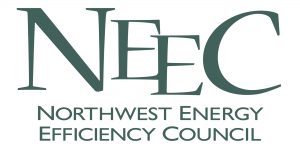Los Angeles Department of Water and Power (LADWP) which serves electricity to Los Angeles will be using an automatic rate adjustment mechanism called decoupling. The Los Angeles City Council this month approved decoupling, making it the first public power utility in the country to do so (a handful of investor owned utilities have incorporated the concept). An approach long advocated by Ralph Cavanaugh of the Natural Resource Defense Council, (read his blog post on it here) decoupling is an automatic rate adjustment mechanism (that is, no political action is necessary) should reduced revenues from sales, triggered by energy efficiency improvements, result in a shortfall of recovery in the utility’s authorized non-fuel costs. In the case of LADWP, this increased certainty in the recovery of the utility’s fixed costs is triggering a doubling of that utility’s energy efficiency incentive budget to $265M over the next two years.
So what problem is this solving? Utilities must recover their fixed cost of operation through retail revenues (unless they are also lucky enough to have excess power for wholesale market transactions). Energy efficiency, while the least expensive resource for a utility over time, does inescapably affect retail revenues by diminishing sales volume. While public utilities have more control over ratemaking than their regulated counterparts, rates are never changed in a political vacuum. In the case of LADWP, an automatic and transparent adjustment to its rates predicated by energy efficiency success provided additional increments of certainty in that utility’s ability to meet its revenue requirements. While the long term value of acquiring energy efficiency is real and calculable, for some public utilities the risk and anguish of rate adjustment in a political environment can dilute fervor for an aggressive efficiency acquisition strategy. Time will tell whether LADWP finds decoupling to be a good option for a public utility. It is important to note as LADWP celebrates its success, that many investor owned utilities find simple decoupling as nice but insufficient in addressing underlying business model deficiencies when operating substantial energy efficiency acquisition programs. NEEC shares these business model concerns and supports a progressive regional and national dialogue on an improved utility business model that can accommodate an expansive energy efficiency acquisition effort.
